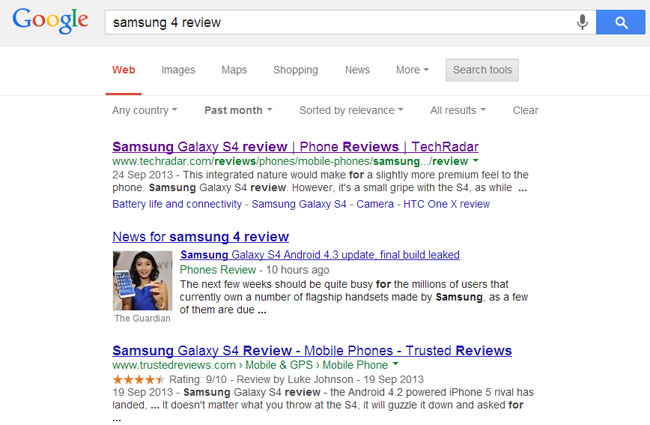Three months ago, Glen from ViperChill wrote a fantastic article about SEO entitled “Revealed: The New SEO (When Google Takes Freshness Too Far)“. One of the key concepts that he addressed in his article was the freshness factor that Google uses in its ranking algorithms.
All search engines should, of course, include the freshness of an article in its ranking factors. We do not want search engine results littered with articles from years ago that are no longer relevant. The problem is that many website owners are taking advantage of the fact that Google likes newer articles…..and it is working. They are constantly updating older articles so that the publication date is changed. Normally, a sentence or two is added to the article to give the impression that the article is new. Sometimes, part of the content is simply reworded.
With a newer publication date, articles are being ranked high in search engine results. As a website owner, I do not like this. I do not want to have to constantly update articles in order for me to get good search engine traffic. I should not have to spend additional time doing this; particularly when I am not improving the article.
As an internet user, this gaping SEO hole has become very annoying. Most of you know that I am a bit of a tech geek and follow tech news regularly. Recently, I have been reading mobile phone related news and reviews frequently as I am on the lookout for a new phone. Unfortunately, most online tech blogs and magazines are “Refreshing” their articles in order to rank them higher.
Take the Nexus 5, for example, which is the follow up to the highly successful Nexus 4 mobile phone (note: the phone may not be called Nexus 5). Tomorrow, Google is going to confirm the exact specifications and price for the phone. As this is an eagerly anticipated phone, there have been rumours about the phone for several months. What most tech blogs have been doing is writing one article about the Nexus and constantly updating it. I have been monitoring this closely and noticed that many blogs are updating the article every few days, even when no other rumours or information has surfaced about the phone. They are simply rewording some of the text and adding a notice that the article has been updated.
It is not just rumour articles that are constantly getting refreshed. Reviews are too. All major tech blogs review phones as soon as they are released. For example, Samsung’s current flagship, the Samsung S4, was released on 13 March 2013. Therefore, the vast majority reviews of the phone were published in March 2013. Yet all the search results for “Samsung S4 Review” are from September and October 2013. A quick scan of all of these articles shows that every article was originally published in March 2013.

I would not have a big problem with this if articles were genuinely being refreshed, however they are not. The reviews are not updated with comparisons against phones that have been released during the seven month period after the phone’s launch. Nor have any articles got new opinions on whether the phone still offers value for money against newer phones or whether certain problems have become apparent to all Samsung S4 users after a few months of use. The articles simply have a small sentence or two added every month to make sure Google classifies the article as “Fresh”.
I do not profess to know how Google can address this. The freshness of an article should be a factor in search engine rankings, however websites that are getting high rankings are doing so due through making slight amendments. They are gaming the system too easily. When that happens, Google needs to act.
You may be thinking that “If you can’t beat them, join them”; however I do not want to spend all my time updating older articles when I could be focusing on new ones. Neither do I want to fool my readers into thinking that an article is newer either. Google needs to address this issue. I should not lose search engine traffic to my websites due to competitors constantly re-wording articles in order to fool Google. And as an internet user, I am sick of checking articles that are being promoted as being fresh, when in reality they are months or years old.
What has your experience of this issue been as a website owner as an internet user? Please leave a comment and give me your opinion on the issue.
Thanks for reading.
Kevin

